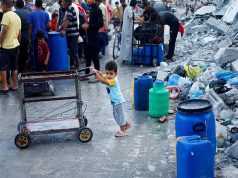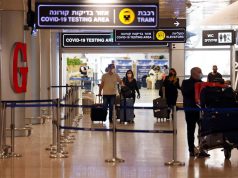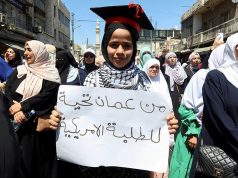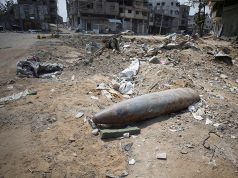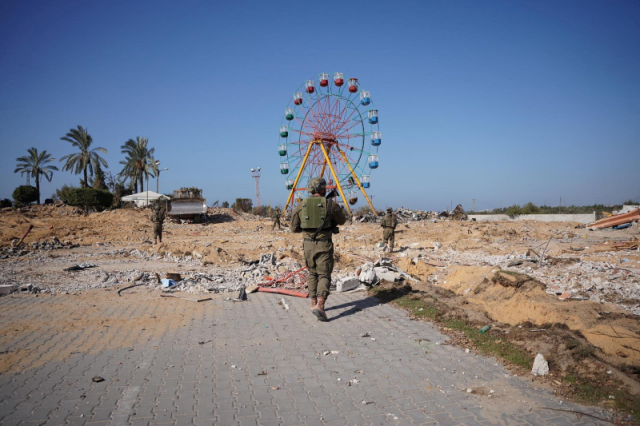
GAZA/JERUSALEM — Israel’s ground forces in the Gaza Strip aimed on Wednesday to locate and disable Hamas militants’ vast tunnel network beneath the enclave, the next phase in an Israeli offensive that has killed thousands of Palestinians.
Since Hamas gunmen killed 1,400 people and took some 240 hostages in an Oct. 7 cross-border gun rampage, Israel has pounded Gaza from the air and used ground troops to divide the coastal enclave in two.
Gaza City, the territory’s largest town and Hamas’ main stronghold, is encircled. Israel says its troops have advanced to the heart of the city while Hamas says its fighters have inflicted heavy losses on the invading forces.
Chief Israeli military spokesperson Rear Admiral Daniel Hagari said that Israel’s combat engineering corps were using explosive devices to destroy a tunnel network built by Hamas that stretches for hundreds of kilometers (miles) beneath Gaza.
Defence Minister Yoav Gallant said Israel had “one target – Hamas terrorists in Gaza, their infrastructure, their commanders, bunkers, communications rooms”.
Israeli tanks have faced heavy resistance from Hamas fighters using the tunnel network to launch ambushes, two sources with Hamas and the separate militant group Islamic Jihad said.
It was not possible to verify the battlefield claims of either side.
Israelis have voiced fear that military operations could further endanger hostages, who are believed to be held in the tunnels. Israel says it won’t agree to a ceasefire until the hostages are released. Hamas says it won’t stop fighting while Gaza is under attack.
“I challenge (Israel) if it has been able, to this moment, to record any military achievement on the ground other than killing civilians,” senior Hamas official Ghazi Hamad told Al Jazeera television.
“Gaza is unbreakable and will remain a thorn in the throat of the Americans and the Zionists,” Hamad said.
While Israel’s military operation is focused on the northern half of Gaza, the south has also come under attack. Palestinian health officials said at least 23 people were killed in two Israeli airstrikes on Tuesday in the southern cities of Khan Younis and Rafah.
Since Oct. 7, Israeli bombardment has killed more than 10,000 Palestinians, around 40% of them children, according to counts by health officials in Hamas-ruled Gaza.
Washington has backed Israel’s position that a ceasefire would help Hamas militarily. But U.S. President Joe Biden said on Tuesday he had urged Prime Minister Benjamin Netanyahu to undertake a pause in fighting.
In Gaza‘s Khan Younis, rescuers used their bare hands to try to free a girl buried to her waist in debris following an attack on a house that health officials said killed 11 people.
“This is the bravery of the so-called Israel – they show their might and power against civilians, babies inside, kids inside, and elderly,” said Ahmed Ayesh, who was rescued from the rubble of the house.
Israel seeks ‘indefinite period of control’
Hamas’ armed wing said late on Tuesday it fired missiles at Tel Aviv, and rocket sirens sounded in the Israeli city and other cities in central Israel.
Israelis in Tel Aviv marked one month since the Hamas attack with a candlelight vigil around photos of the hostages at Habima Square. Some people wept, some sang or prayed.
“I came to look at the faces of the hostages, to feel part of it. … I want to be by the sides of the families whose loved ones are” in Gaza, said Valeria Nesterov, 24, a make-up artist.
Israel has so far been vague about its long-term plans if it achieves its stated goal of vanquishing Hamas. In some of the first direct comments on the subject, Netanyahu said Israel would seek to have security responsibility for Gaza “for an indefinite period” after the war.
But officials said Israel is not interested in governing the enclave. Gallant, Israel’s defense minister, said that after the war was finished, neither Israel nor Hamas would rule Gaza.
‘Getting worse day after day’
Gaza‘s already dire living conditions have deteriorated further following a month of relentless bombardment. Nearly two-thirds of Gaza‘s 2.3 million residents are internally displaced, according to U.N. figures, with thousands seeking refuge at hospitals including in makeshift canvas shelters in their car parks.
At Gaza City’s Al Shifa hospital, Um Haitham Hejela, a woman sheltering with young children in an improvised tent fashioned from fabric, said they fled their home because of air strikes.
“The situation is getting worse day after day,” she said. “There is no food, no water. When my son goes to pick up water, he queues for three or four hours in the line. They struck bakeries, we don’t have bread.”
The World Health Organization estimates 122,000 displaced Gazans are sheltering in hospitals, churches and other public buildings across the strip, with a further 827,000 in schools.
The Israeli military has accused Hamas of hiding tunnel entrances and operational centres inside Al Shifa hospital, which the group has denied.
International organizations and Western countries have been urgently trying to get aid into the strip and get foreign nationals out.
The International Committee of the Red Cross (ICRC) said a humanitarian convoy came under fire in Gaza City on Tuesday.
After rerouting, the convoy delivered medical supplies to Al Shifa hospital. Calling the incident “deeply troubling,” the organisation said two trucks were damaged and a driver was lightly wounded. It did not identify the source of the firing.
– Reporting by Nidal al-Mughrabi in Gaza, Maytaal Angel, Emily Rose and Maayan Lubell in Jerusalem and Rami Amichay in Tel Aviv; writing by Rami Ayyub; Editing by Cynthia Osterman




